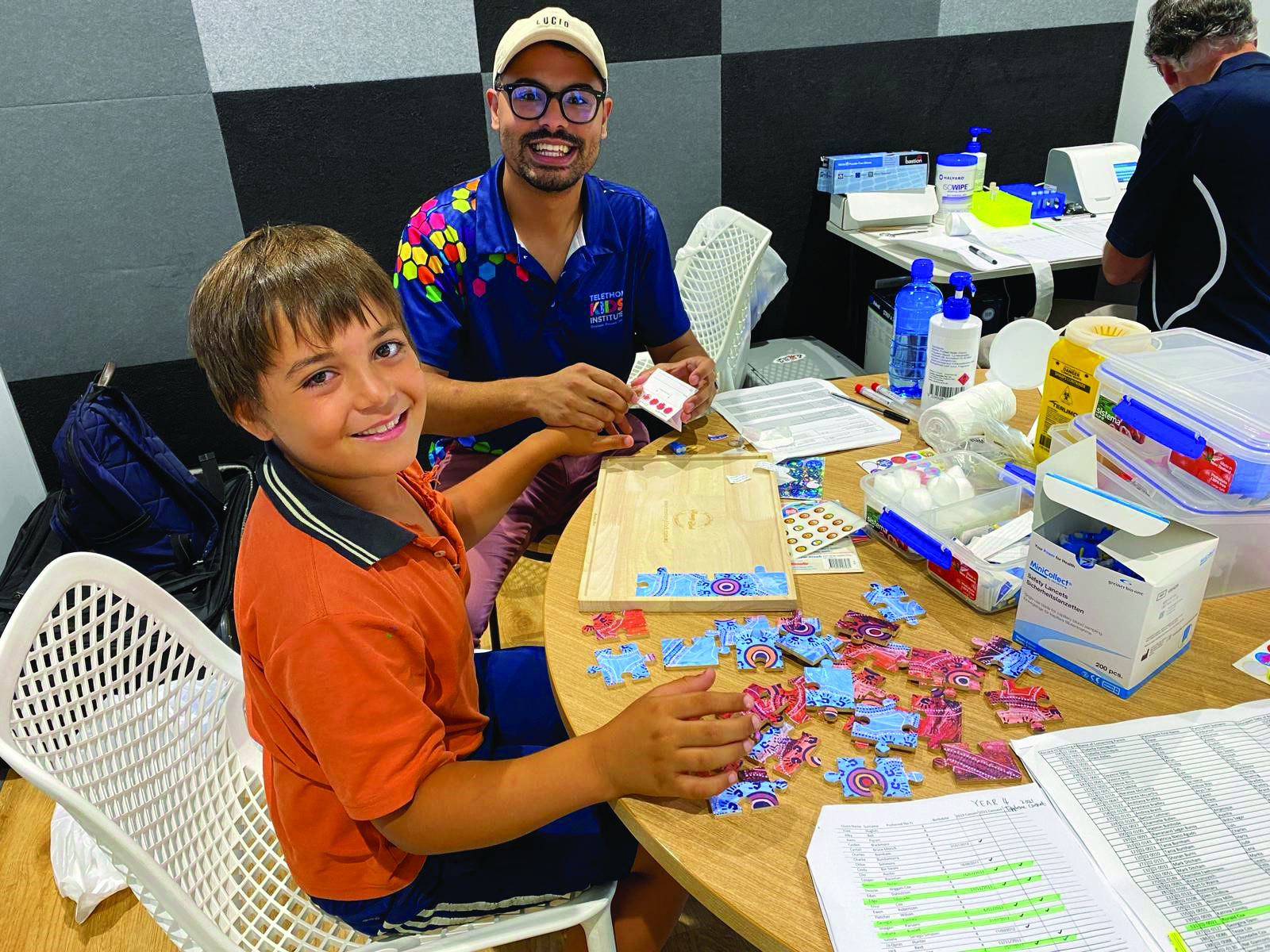Search
Showing results for "Professor"
News & Events
National funding success for child health researchersResearchers from the Telethon Institute have today been awarded $3.46 million in competitive grants and two early career fellowships from the NHMRC.
Research
Development of a screening tool to identify safer biodieselsAlexander Anthony Larcombe Kicic BScEnv (Hons) PhD BSc (Hons) PhD Honorary Research Fellow Rothwell Family Fellow; Head, Airway Epithelial Research
Research
Primary central nervous system lymphoma: Initial features, outcome, and late effects in 75 children and adolescentsChildren with Primary Central Nervous System Lymphoma and no immunodeficiency have a good outcome
Research
Cardio-Oncology Recommendations for Pediatric Oncology Patients: An Australian and New Zealand Delphi consensusCardio-oncology is a new multidisciplinary area of expertise that seeks to pre-emptively and proactively address cardiac complications that emerge during and following cancer therapy. Modern therapies including molecular targeted therapy and immunotherapy have broadened the agents that can cause cardiac sequelae, often with complications arising within days to weeks of therapy.
Research
Immune modulation by UV: Role of vitamin DIn this chapter, evidence for and evidence against the involvement of vitamin D in the immunoregulatory properties of UV radiation is presented.

Thanks to research, a six -second test can get the answers that could save a child’s life.

News & Events
Top-up funding announced to fast-track clinical trials of Spritz-OMResearchers developing a nasal therapy to prevent childhood ear infections and reduce overuse of antibiotics have received $300,000 in top-up funding.

News & Events
WATCH: Working Together after the referendumProfessor Helen Milroy, Michael Mitchell, and Professors Roz Walker and Pat Dudgeon sat on the panel to discuss Working Together, 10 years on.

News & Events
Let's add years to kids' livesHave you seen our recent letter about a new area of research we’d like to focus on to improve the heart health of kids with type 1 diabetes? More and more evidence is showing the importance of exercise and cardiovascular health but surprisingly there isn’t much research in this field.
Research
Protocol for a nested case-control study design for omics investigations in the Environmental Determinants of Islet Autoimmunity cohortThe Environmental Determinants of Islet Autoimmunity (ENDIA) pregnancy-birth cohort investigates the developmental origins of type 1 diabetes (T1D), with recruitment between 2013 and 2019. ENDIA is the first study in the world with comprehensive data and biospecimen collection during pregnancy, at birth and through childhood from at-risk children who have a first-degree relative with T1D.
